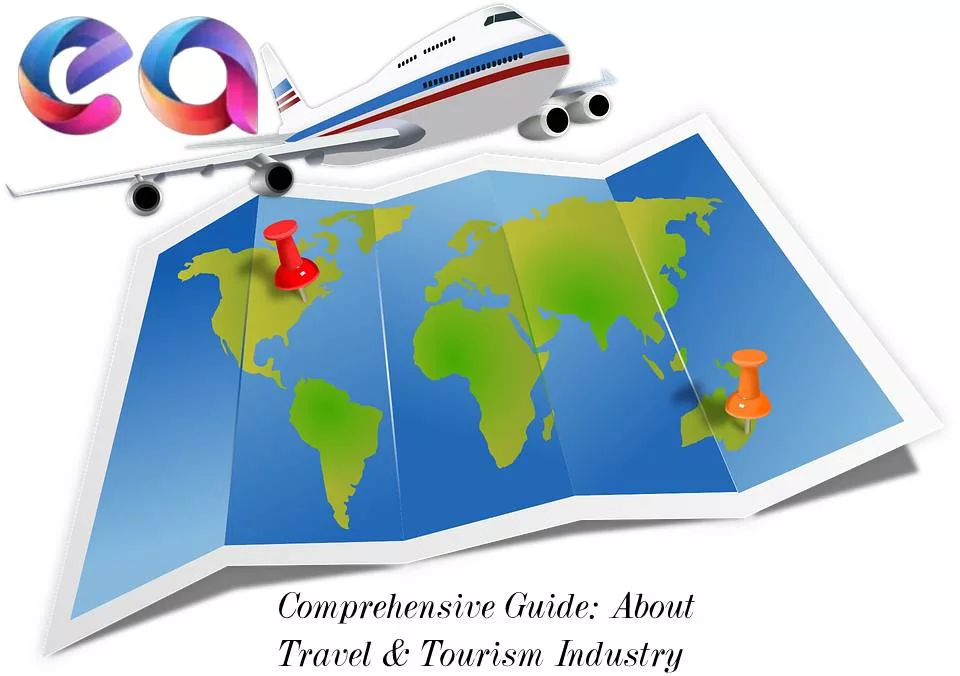
Travel & tourism industry is one of the largest and fastest-growing industries in the world. With advancements in technology and transportation, travel has become more accessible and affordable for people from all walks of life. In this article, we’ll explore the key aspects of the travel and tourism industry, including its history, current state, and future trends.
History of Travel & Tourism Industry:
The travel and tourism industry has a long and fascinating history, dating back thousands of years. In ancient times, people traveled for religious purposes, trade, and exploration. The Grand Tour, a tradition of travel in Europe during the 17th and 18th centuries, saw wealthy young men travel to different countries to broaden their education and cultural experiences. In the 19th and 20th centuries, the industry boomed with the growth of rail and air travel, making it easier and more affordable for people to travel. Today, travel and tourism continues to grow, with millions of people traveling for business, leisure, and educational purposes.
Current State of Travel & Tourism Industry:
The travel and tourism industry has been heavily impacted by the COVID-19 pandemic, with international travel restrictions and health concerns leading to a significant decrease in travel. Despite the challenges, the industry has adapted with the growth of domestic and short-distance travel, and the development of health and safety measures such as contactless check-ins and increased cleaning protocols. The industry is also experimenting with new technologies, such as virtual and augmented reality, to provide travelers with unique experiences.
The travel and tourism industry also has a significant impact on the global economy, contributing to job creation and economic growth. According to the World Travel & Tourism Council, the industry directly and indirectly supports 1 in 10 jobs worldwide, and is expected to grow in the coming years as the global economy recovers from the pandemic.
Future Trends in Travel & Tourism Industry:
There are several trends shaping the future of the travel and tourism industry, including:
Sustainability: As travelers become more environmentally conscious, they are seeking out sustainable travel options, such as eco-friendly accommodations and sustainable transportation. The travel and tourism industry is responding by developing sustainable practices, such as reducing waste, conserving energy, and minimizing carbon emissions.
Technology: The use of technology is continuing to play a significant role in the travel and tourism industry, from online booking platforms to virtual reality experiences. The industry is also exploring the use of blockchain technology, which can help increase transparency, security, and efficiency in the travel industry.
Experiential travel: Travelers are seeking unique and meaningful experiences, rather than simply visiting tourist hotspots. The travel and tourism industry is responding by offering unique experiences, such as adventure sports, cultural immersion, and food and wine tours.
Health and wellness: Health and wellness travel is growing in popularity, as travelers seek out destinations and activities that promote physical and mental well-being. The travel and tourism industry is responding by offering wellness-focused accommodations, such as yoga retreats and spas, and by promoting destinations known for their natural beauty and outdoor activities.
Domestic travel: With international travel restrictions in place, domestic travel is becoming increasingly popular. The travel and tourism industry is responding by promoting domestic destinations, such as national parks and scenic routes, and by offering packages and deals for domestic travelers.
Travel and tourism are often used interchangeably, but there is a difference between the two terms.
Travel refers to the physical act of moving from one place to another for leisure, business, or other purposes. It encompasses all aspects of transportation, including air travel, train travel, car rental, and more.
Tourism, on the other hand, refers to the activities that travelers participate in once they have arrived at their destination. This can include visiting attractions, eating at local restaurants, shopping, and participating in recreational activities. Tourism also includes the broader industry that supports these activities, such as hotels, tour operators, and travel agents.
So, the travel industry is focused on the logistics of getting travelers from one place to another, while the tourism industry is focused on the experiences and activities that travelers have once they arrive at their destination. Together, the travel and tourism industries form a large and complex system that supports the movement and enjoyment of millions of travelers each year.
Top 15 places that are hotspot for foreigners India
Sectors within the Travel and Tourism Industry:
The travel and tourism industry is made up of several interconnected sectors, each playing a key role in supporting travelers and creating memorable experiences. Some of the main sectors within the travel and tourism industry include:
Transportation: This sector encompasses all modes of transportation, including air travel, rail travel, road transport, and maritime travel. It also includes transportation-related services such as car rental and taxi services.
Accommodation: This sector includes hotels, motels, resorts, and other forms of short-term accommodation. It also includes vacation rental properties, such as vacation homes and apartments.
Food and Beverage: This sector includes restaurants, cafes, bars, and other food and beverage outlets that serve travelers. It also includes catering services for events, conventions, and other large gatherings.
Tourism Services: This sector includes tour operators, travel agents, and other organizations that provide services to help travelers plan and book their trips. It also includes attractions and entertainment venues, such as theme parks, museums, and theaters.
Retail: This sector includes shops and stores that sell souvenirs, gifts, and other items to travelers. It also includes duty-free shops and other retail outlets that cater specifically to travelers.
Business Travel: This sector includes services and facilities that support business travel, such as conference and exhibition centers, business hotels, and office rental services.
Each of these sectors plays an important role in the travel and tourism industry, working together to create seamless experiences for travelers and generate economic benefits for local communities.
Conclusion: Travel and tourism is a dynamic and ever-evolving industry, shaped by advancements in technology, changing traveler preferences, and global events. Despite the challenges posed by the COVID-19 pandemic, the industry remains a significant contributor to the global economy and continues to offer travelers unique and memorable experiences. With a focus on sustainability, technology, experient ial travel, health and wellness, and domestic travel, the travel and tourism industry is poised for continued growth and innovation in the coming years. Whether you’re a seasoned traveler or a newcomer to the industry, it’s an exciting time to be a part of the world of travel and tourism. So, pack your bags and get ready to explore the world – the opportunities are endless!












